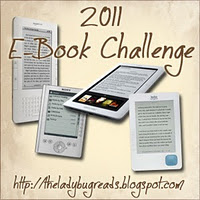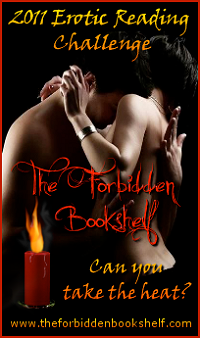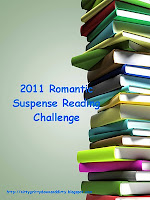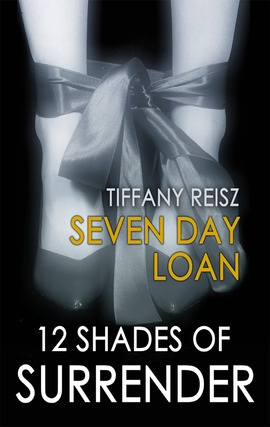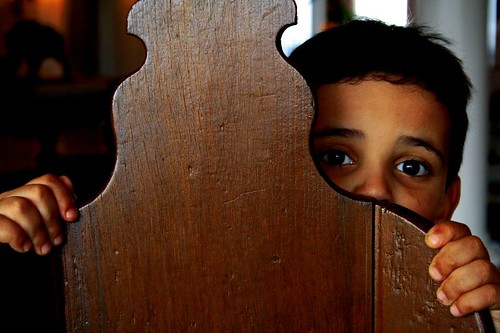Today, I have a special treat for you! Julie Cross, my friend and the author of the upcoming Tempest trilogy is here to shed some light on writing that lovely part of teenage existence--angst. Ugh. Even the word sounds gross and painful. But there's no writing YA without an in depth knowledge of angsty-ness. I mean, what fun is a totally well-adjusted teen character? Bo-ring!
So, take it away Julie...
The Essence of Writing Teen Angst
One concept that I grasped early on in my writing journey is how different teen angst can be from what you might read in an adult novel. And when I say angst, I’m talking about the drama, the emotion, the character’s internal struggles that evolve from a well crafted story. Adults who are new to writing YA may struggle to make this believable for readers. Mostly because we are more removed from those years.
I’ve created a few basic guidelines for writing YA drama and emotion that is both authentic and true to teen characters, but also appeals to a wide variety of readers—adults included. A lot of what teenagers go through, to an adult, seems ridiculous to even dwell on. But a good YA writer will pull us so completely into a character’s head that we are living the emotion right along with them. First kisses, first boyfriends, fighting with your best friend, fitting in… all of it becomes so real we can feel it. And then we immediately thank whatever all-powerful being we pray to, that those years are really over.
Onto the real lesson. Point number 1:
UNDERSTAND NOWHERE LAND
- Nowhere land is the in between world teens have to live in. They aren’t adults, they aren’t kids, but they have to act to like both sometimes and shouldn’t act like either at other times.
- Think about it. Teens are expected to operate a vehicle responsibly on the same road as families piled in minivans. And yet, they can’t go to the bathroom during Biology without permission and a hall pass. That is seriously confusing!
- Nowhere land creates this “Right Now” state of mind. All focus is directed on the present. Teens are impulsive and everything going on in their lives, right now, truly becomes the most important thing in the world.
- This is the reason YA books are typically very fast paced and the stories rarely stretch over long periods of time. Even teenagers that appear to be responsible-future-planning-good-decision-makers are faking it most of the time. By “faking it” I mean they’re following the steps, but not really understanding or visualizing the long term outcome. They really can’t at that age.
- As a writer, you have to figure out how to embrace Nowhere Land and freeze a moment in your character’s life. Start with the beginning of the book’s major event or conflict (or just before). Then dissect it and make your reader feel like there is no other day, month, or year except this one.
- Personally, I LOVE to write the way-before-my-story-actually-starts pages because it helps me get to know my characters better. And besides, prequels are totally in right now. So go ahead and write those excess pages if you need to, then cut them out later.
- Think about Judy Blume’s famous YA book, FOREVER (if you’ve read it). Katherine is so absorbed in her relationship with Michael, her first love, she can’t imagine ever being with anyone else. No one can shake her and tell her she’s wrong. It won’t work. And the reader is in there with Katherine. On her side. That’s what you have to do as a writer.
THE TRUTH….WHAT’S THAT AGAIN?
- Honesty is probably more rare in teens than anything else. They lie to everyone. When they’re trying to be nice they lie, when they get angry and shout horrible things they lie. Teens aren’t supposed to get too excited about anything, or too upset. They’re not supposed to care what other people think, which means they can’t do anything but care.
- When writing a YA book, the external dialogue and internal dialogue should show that sharp contrast of truth and lies. But don’t spell it out, let the reader slowly interpret it for themselves. If you’ve read CATCHER IN THE RYE than you know exactly how this can be done. Holden is the ultimate unreliable character. I also have a tiny excerpt from an old manuscript that basically displays the lack of truth flowing between two teen characters:
When I turned around Drew was there, standing in the door way. The instant our eyes met, I knew I was in love so much my heart would shatter into a million pieces, and there was no way to put it back together. No going back.
It was an unhealthy obsession, like Alice. A delusion.
I forced myself to suck in a breath, even with the stabbing pain. “Are you taking off?” I asked him.
“Yeah, my dad wants to hang out.”
“I guess we’ll both be at the dance tonight.”
“John asked you?”
I nodded, trying to read his face. Searching for some kind of reaction.
He turned and walked toward the door and then in an instant snapped back around. “Tawny, if you want to me stay, I will.”
Which means you feel guilty about screwing me. I didn’t want any part of the needy girl routine. And I didn’t need any guilt from Drew. This wasn’t his fault, it was mutual.
“Just go, quit worrying about me.”
He opened his mouth to speak and I turned my back on him. A few seconds later the front door closed.
- What I love about writing this dishonesty aspect of the teen years is the opportunity to write the few subtle moments of pure honesty. The raw observations of the world that are so unique through fresh eyes. Another example from my character developmental journals I use to help write TEMPEST.
“The second I walk back into the room, I get an entire eyeful of David’s man region. It doesn’t look anything like I imagined. Like it’s a complete stranger attached to the body of someone who I feel very comfortable with.”
- This excerpt was stolen from Holly’s Diary and is very briefly referenced in TEMPEST. When I told my agent, Suzie Townsend, that I needed to write Holly’s disastrous prom night but it would be too painful to produce a detailed description, she basically said, “You have to do it… no glossing over.”
- The retelling of this was so painfully embarrassing for me as a writer, but I did it and the whole 10 or 12 pages is basically full of blunt, humiliating honesty. And so far the feedback has been good. It reminded me of reading those embarrassing stories in YM magazine with my friends. Everyone devoured them.
BE TRUE TO YOUR CHARACTERS
- You gotta keep it real…above and beyond anything else. Your character doesn’t represent you, he or she represents your ability to bring a fictional soul to life.
- In my opinion, YA books do this better than most other genres. Yes, the language can be bad, the rating can be worse than R, but the experiences are real and raw.
- The journey that a YA character takes can be amazing and life changing for readers. Seriously. If you don’t believe me, try reading one of these books (if you haven’t already)-- 13 Reasons Why, Before I Die, Twenty Boy Summer, Story of A Girl, Or anything Courtney Summers has written. Those are stories that stick in your head long after that final page.
EMOTION COMES IN LAYERS
- Build up to the tension or angst slowly throughout the story and then hit that peak close to the end
- Feel free to take every amount of support and help away from your character until you’ve left him or her standing in the middle of the woods completely naked in twenty below temperatures. But do this one layer at a time.
- The first layer of emotion needs to come early on and not be too heavy or cheesy. It should be carefully inserted and possibly open the door for an unresolved issue that the main character is dealing with or going to have to deal with. This one is from the end of the first 20 pages of one of my earlier contemporary YA manuscripts. The story is about a painfully shy Catholic school girl who gets tangled in a web of mean girls, a cute older boy, and a lot of really bad rumors.
I was writing my answer to Hailey’s riddle when the rest of the lights went out. I leaned further forward, squinting so I could see the letters properly. I heard Alison gasp beside me and I lifted my head and was completely horrified when I saw the words on the giant screen. They read:
THE ELEANOR STORY – A STORY OF A GIRL WHOSE REPUTATION GOT IN THE WAY OF HER RELATIONSHIP WITH GOD.
Translate that into eighth grade terms – the girl was easy and boy crazy and would rather be kissing than praying. And she had my name! And reddish-brown hair, like me.
My heart was pounding so loud I thought blood might start pouring out of my ears. It was slow motion. Heads were moving around, twenty-nine of them, until finally fifty-eight eyes were staring at me. This was the worst spotlight ever. Or like the dream where you go to school naked. Alison gripped my hand and Hailey’s fingernails dug into my arm confirming that my worries were justified. I was never going to live this down.
I watched in horror as movie Eleanor became the most exaggerated flirt ever in the history of fourteen year-old girls. I mean get real! They had this girl hiding in a closet with one boy and then telling another boy she wants to meet him after school behind the dumpster. Seriously. The dumpster. The worst part was the end when she went to the priest crying because everyone was calling her an inappropriate word I won’t say. When the movie ended Sister Clarisse turned the lights back on and the three of us sat there frozen while everyone filed out.
“I would have rather put condoms on fruit,” I said.
“Definitely,” both girls said together.
So, there you have it. The essence of teen angst. And yes, lots of these techniques can be applied to other genres, but the actual moments in a YA book, the reactions of the characters, are extremely unique. This genre is blooming more than any other and that alone is certainly worth taking a hard look at the reasons behind the popularity of YA novels. Not just teens are reading these books anymore. The audience is very broad.
 Julie Cross is represented by Suzie Townsend with FinePrint Lit. Her young adult novel, TEMPEST has been sold to editor Brendan Deneen with Thomas Dunne in a 3 book deal. TEMPEST is the first in a trilogy about a 19-year-old time traveler who witnesses his girlfriend's murder and inadvertently jumps back two years; stuck there, he's recruited by a shadowy government agency run by the man he thought was his father and vows to save his girlfriend no matter the cost. Visit her at http://juliecross.blogspot.com/
Julie Cross is represented by Suzie Townsend with FinePrint Lit. Her young adult novel, TEMPEST has been sold to editor Brendan Deneen with Thomas Dunne in a 3 book deal. TEMPEST is the first in a trilogy about a 19-year-old time traveler who witnesses his girlfriend's murder and inadvertently jumps back two years; stuck there, he's recruited by a shadowy government agency run by the man he thought was his father and vows to save his girlfriend no matter the cost. Visit her at http://juliecross.blogspot.com/




